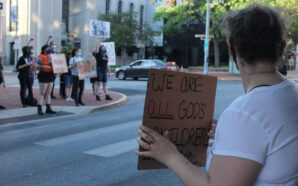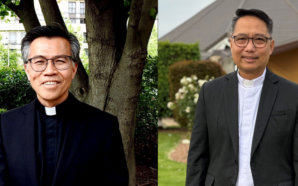He faithfully served three popes. On his 80th birthday, January 22, Cardinal Christoph Schönborn submitted his resignation as Archbishop of Vienna, which Pope Francis accepted. A few days earlier, he had bid farewell to the Austrian capital during a Thanksgiving Mass at St. Stephen’s Cathedral. Having served as Vienna’s archbishop for nearly 30 years—his tenure was extended in 2020 despite reaching the age limit—he also chaired the Austrian Bishops’ Conference from 1998 to 2020 and was an especially active member of the Roman Curia.
A Dominican made cardinal by John Paul II in 1998, he will be remembered as one of the most influential figures in the Catholic Church over the past few decades. Known for his close relationship with the Polish pope and even more so with Benedict XVI, he also gained the confidence of Francis, who frequently sought his counsel and appointed him president of the supervisory board of the Vatican Bank in 2024.
Architect of key papal documents, from John Paul II to Francis
His Roman career began in 1980, when John Paul II appointed the 36-year-old Dominican, then a theology professor in Fribourg (Switzerland), to the International Theological Commission alongside his former professor, Cardinal Joseph Ratzinger. Shortly after, Ratzinger, who had become Prefect of the Congregation for the Doctrine of the Faith, chose Schönborn to oversee the drafting of the Catechism of the Catholic Church from 1987 to 1992.
This large-scale project remained, as Schönborn described in a 2017 interview with Vatican Radio, the “most important experience of [his] life.” A brilliant theologian, he shaped the Catechism with a distinctive emphasis on the words of saints, not just the Doctors of the Church.
Another significant contribution, under Pope Francis, came during the two Synods on the Family, which led to the publication of Amoris Laetitia (2016). This document opened the door, under specific conditions, for divorced and remarried individuals to receive communion. Many debates unfolded in the German-speaking group, where two opposing camps, led by Cardinals Gerhard Müller and Walter Kasper, clashed.
Having personally experienced the pain of his parents’ divorce, Schönborn proposed the pastoral solution ultimately adopted by the Synod and Pope Francis: avoiding a general rule and instead giving pastors significant discretion to discern cases individually. For this reason, Francis designated the Austrian cardinal as the official interpreter of Amoris Laetitia when it was presented.
“He gave his best while embracing the charism of each pope he served, including Francis, whose prophetic insights he recognized,” noted French Dominican Jean-Miguel Garrigues. He also highlighted Schönborn’s “ability to build bridges and move beyond conflicts.”
Addressing the sexual abuse crisis in the church
Appointed Auxiliary Bishop of Vienna in 1991, Schönborn became its archbishop in 1995 during a time of severe crisis, as his predecessor, Cardinal Hans Hermann Groër, faced allegations of pedophilia. In 2010, Schönborn established an independent commission to hear the testimonies of victims of sexual abuse within Catholic institutions, leading to their compensation.
In Vienna, he was sometimes criticized as being too progressive—such as in 2013 when he allowed a man in a same-sex relationship to remain on a parish council—or not progressive enough, as evidenced by the “Call to Disobedience” from 350 Austrian priests demanding significant Church reforms, including married clergy. With careful pastoral prudence, he managed to rebuild trust in this challenging diocese, also marked by a virulent far-right presence.
A life of service to the universal church
Since being made cardinal in 1998, the polyglot and Francophile Schönborn has served in numerous Vatican departments and councils, including the then-named Congregation for the Doctrine of the Faith, the Congregation for Eastern Churches, and the Congregation for Catholic Education. He has also contributed to the pontifical councils for culture, evangelization, and laity.
To date, he has participated actively in nine Synods of Bishops assemblies, including the recent Synod on Synodality, as well as two conclaves, in 2005 and 2013. Frequently mentioned as a possible candidate for the papacy (papabile), he will no longer be eligible to vote in the next conclave, having reached the age of 80.
Reproduced with permission from La Croix International.








